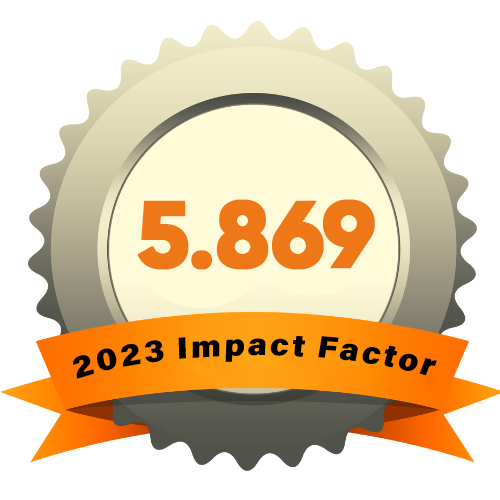THE PEDAGOGICAL FEATURES OF SELF-STUDY: A COMPREHENSIVE ANALYSIS OF ITS’ TYPES
Abstract
This article offers a comprehensive analysis of the pedagogical features inherent in self-study, exploring different types. Self-study, a well-known educational approach, gives students the opportunity to take control of their learning process, promoting autonomy. Based on an extensive literature review, this study identifies self-learning in the context of education and highlights its importance for developing lifelong learning skills. The article delves into the methodologies, theories, and structures of self-study, clarifying the underlying pedagogical theories that underlie the practice of self-study. In addition, it explores different types of self-learning, including independent learning, self-directed learning, and autonomous learning, highlighting their unique characteristics and implications for educational practice. By summarizing existing research and insights, this study contributes to a deeper understanding of self-learning pedagogy and provides valuable guidance to educators, researchers, and policy makers on how to create effective environments for self-directed learning.
References
Gibbs, G., & Simpson, C. (2004). Conditions under which assessment supports students’ learning. Learning and Teaching in Higher Education, 1(1), 3-31.
Kramarski, B., & Gutman, M. (2006). How can self-regulated learning be supported in mathematical E-learning environments? Journal of Computer Assisted Learning, 22(1), 24-33.
Zhang, Y., & Wildemuth, B. M. (2009). Qualitative analysis of content. In B. Wildemuth (Ed.), Applications of social research methods to questions in information and library science (pp. 308-319). Libraries Unlimited.
Deci, E. L., & Ryan, R. M. (1985). Intrinsic motivation and self-determination in human behavior. Plenum.
Vygotsky, L. S. (1978). Mind in society: The development of higher psychological processes. Harvard University Press.
Jonassen, D. H. (1991). Objectivism versus constructivism: Do we need a new philosophical paradigm? Educational Technology Research and Development, 39(3), 5-14.
Lave, J., & Wenger, E. (1991). Situated learning: Legitimate peripheral participation. Cambridge University Press.
Entwistle, N. (2000). Promoting deep learning through teaching and assessment: Conceptual frameworks and educational contexts. Paper presented at the Joint Plenary Session of the Annual Conference of the Society for Research into Higher Education and the British Educational Research Association, Cardiff.
Pintrich, P. R. (2000). The role of goal orientation in self-regulated learning. In M. Boekaerts, P. R. Pintrich, & M. Zeidner (Eds.), Handbook of self-regulation (pp. 451-502). Academic Press.
Zimmerman, B. J. (2002). Becoming a self-regulated learner: An overview. Theory into Practice, 41(2), 64-70.
Holec, H. (1981). Autonomy and foreign language learning. Pergamon Press.
Benson, P. (2011). Teaching and researching autonomy in language learning (2nd ed.). Routledge.
Ryan, R. M., & Deci, E. L. (2000). Intrinsic and extrinsic motivations: Classic definitions and new directions. Contemporary Educational Psychology, 25(1), 54-67.
Reeve, J. (2002). Self-determination theory applied to educational settings. In E. L. Deci & R. M. Ryan (Eds.), Handbook of self-determination research (pp. 183-203). University of Rochester Press.
Flavell, J. H. (1979). Metacognition and cognitive monitoring: A new area of cognitive-developmental inquiry. American Psychologist, 34(10), 906-911.
Schraw, G., & Moshman, D. (1995). Metacognitive theories. Educational Psychology Review, 7(4), 351-371.
Winne, P. H., & Hadwin, A. F. (2008). The weave of motivation and self-regulated learning. In D. H. Schunk & B. J. Zimmerman (Eds.), Motivation and self-regulated learning: Theory, research, and applications (pp. 297-314). Lawrence Erlbaum Associates.
Gibbons, M. (2002). Self-directed learning and self-regulated learning: Conceptual and empirical links. In R. A. Smith (Ed.), Conceptions of learning: Reconsiderations (pp. 307–326). Routledge.
Hiemstra, R., & Brockett, R. G. (1994). Overcoming resistance to self-direction in adult learning. New Directions for Adult and Continuing Education, 1994(64), 15-23.
Knowles, M. S. (1975). Self-directed learning: A guide for learners and teachers. Association Press.
Candy, P. C. (1991). Self-direction for lifelong learning: A comprehensive guide to theory and practice. Jossey-Bass.
Merriam, S. B., & Bierema, L. L. (2014). Adult learning: Linking theory and practice. John Wiley & Sons.
Little, D. (1991). Learner autonomy 1: Definitions, issues and problems. Dublin: Authentik.












